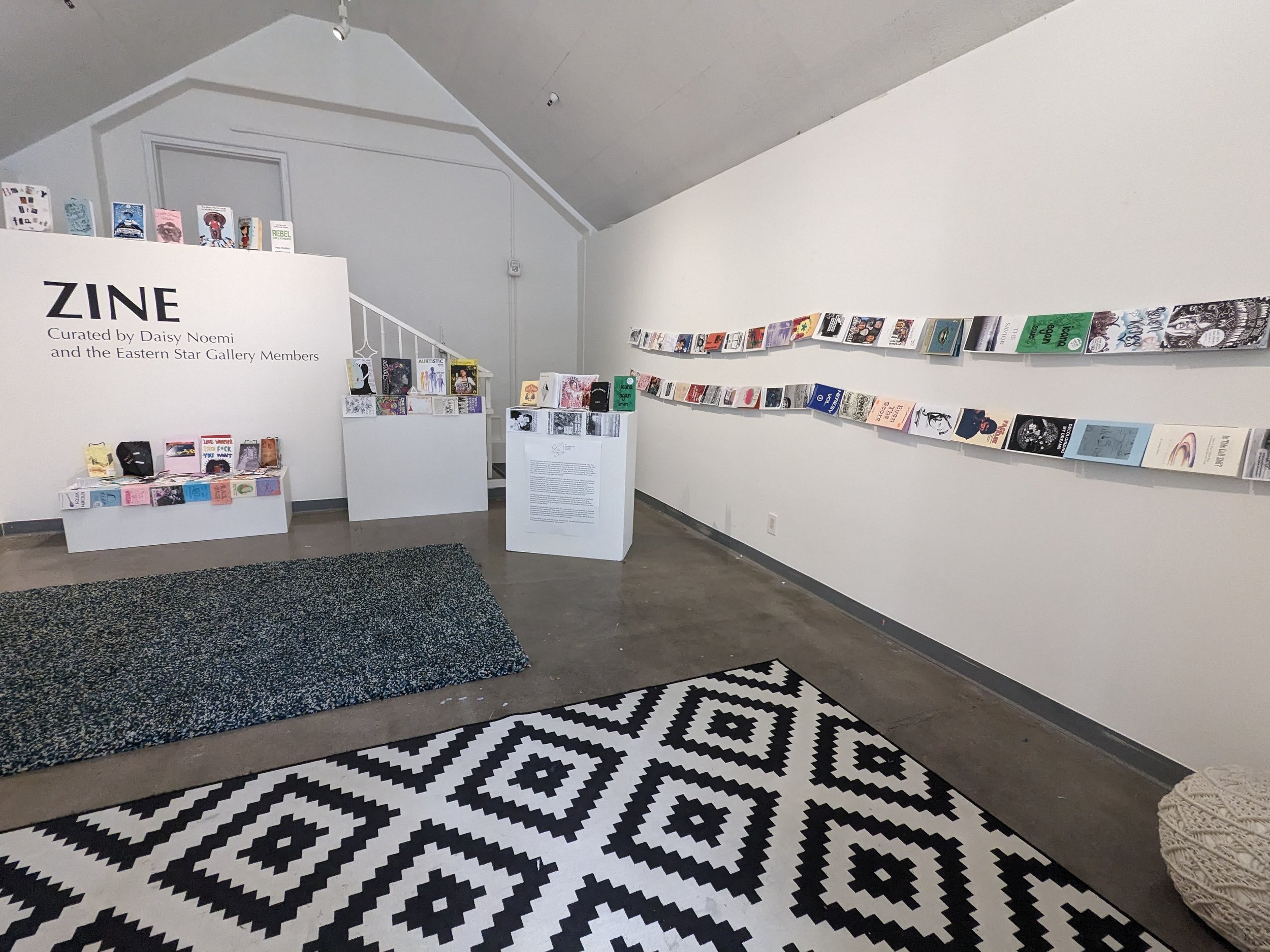This show features the work of numerous artists, focusing on political and activist zines. Our curator, Daisy Noemi is a Los Angeles based photographer and artist who started making zines while living in San Diego. She was inspired by some of the zine events she attended and has been making perzines (a very personal zine, a version of a public diary), drawing/illustration zines, and photo zines ever since. According to Noemi, “there really isn’t a wrong way to make a zine, either in content or construct, as (they) can be tailored for each and every person that makes one. I think that’s really neat and magical.”
In looking through the archive, she searched for zines that came from an “obvious activist lens.” Common themes included politics, colonization, and patriarchy. Noemi also aimed to include topics that “can be activism in their own way,” such as mental health, gender identity, fatphobia, food culture, agriculture, tourism and consent. To Noemi, “these serve as a form of activism because of the erasure that BIPOC communities are constantly battling and if we can document and share our stories to archive our history and place in the world, then why not. As far as our mental health, gender identity and bigger bodies -- I think it's important to continue to educate ourselves on these topics as they intersect with many facets of our lives.”
Among many of the incredible artists whose work is featured in our gallery, Noemi highlights the work of Eunsoo Jeong. Koreangry is a comic/zine project started by the artist in 2016, focusing on “her experiences as a South Korean immigrant” after the election as well as her perspective on being an artist in Los Angeles. Noemi says that Koreangry is “very in-your-face and direct and also funny.”
Zines have existed since the 1930s, but in the 80s and 90s they were used frequently in the punk scene and Riot Grrrl movement. They can be created at a relatively low cost and used to spread and dismantle information. For example, Riot Grrrl zines helped to spread the feminist manifesto and the Black Panthers’ zine-like pamphlets held information like where to get food, recent police activity, and other resources for their community.
The show will be on view from January 24 - February 9th. An opening celebration will be held in the gallery on Wednesday, January 24th at lunch.




